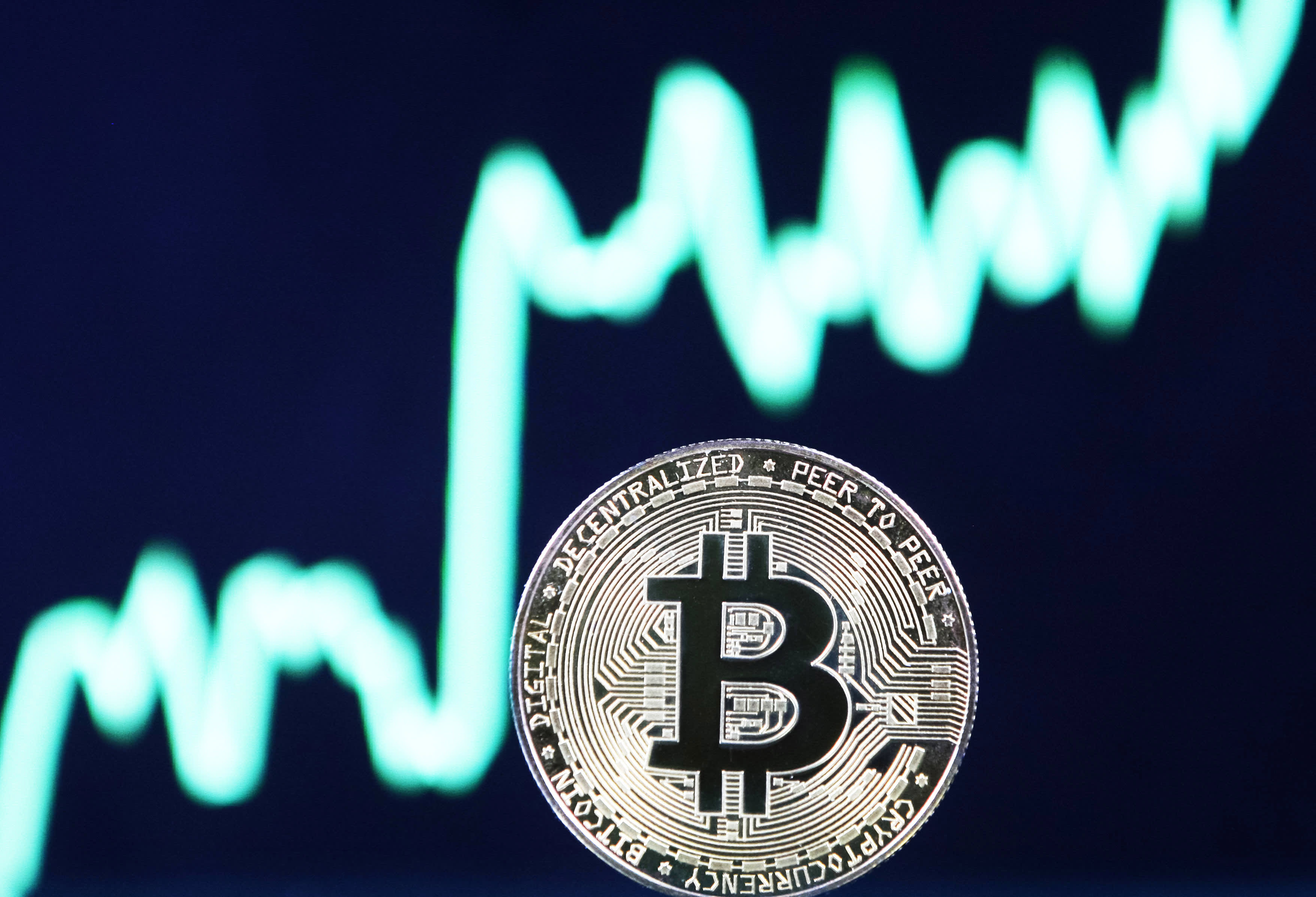
Bitcoin jumped more than 12% on Tuesday continuing its sharp rebound as the Russian assault on Ukraine continues and the U.S. ratchets up sanctions.
The cryptocurrency last rose 12.5% to $44,249.08, according to Coin Metrics. That rally comes after cryptocurrency prices plunged last week as risk assets such as stocks sold off following Russia’s invasion of Ukraine.
Ether jumped 10% to 2,994.29. Earlier in the day the crypto asset rose above $3,000.
Market analysts said there could be a number of reasons behind the big surge in bitcoin including investors buying the dip, attempts to evade sanctions and Ukrainians and Russians trying to get their money out of their respective countries.
Crypto to evade sanctions?
Bitcoin’s rally comes as the U.S. imposed further sanctions on Russia. Washington targeted Russia’s central bank, effectively prohibiting Americans from doing any business with the bank as well as freezing its assets within the U.S.
That comes on top of sanctions that have targeted oligarchs and Russia’s sovereign debt as well as moves aimed at cutting the country off from the global financial system.
Debate has been raging over whether bitcoin, which is not owned or issued by a single authority like a central bank, could be used by Russia to evade sanctions.
Veteran investor Mark Mobius said that could be one reason behind bitcoin’s rise.
“I would say that’s the reason why bitcoin has shown strength now — because the Russians have a way of getting money out, getting their wealth out,” Mobius, founding partner of Mobius Capital Partners, told CNBC on Tuesday.
But the amount of money that Russia would need to convert to and from bitcoin might be too much, according to Ari Redbord, head of legal and government affairs at TRM Labs.
“You’re going to see Russia attempt to circumvent the U.S. financial system by turning to crypto. I think the issue is … the liquidity just simply isn’t there,” Redbord told CNBC’s “Squawk Box Asia.”
But cryptocurrency could also be a way for regular Russians and even Ukrainian citizens to get their money out of their respective countries as their currencies remain volatile.
Bitcoin traded at a 6% premium on Binance exchange’s Ukrainian hryvnia market, according a note published by cryptocurrency research firm Kaiko on Monday. Kaiko also noted that it is “seeing a surge in both Russian ruble and Ukrainian hryvnia cryptocurrency transactions” on cryptocurrency exchanges.
“Until there were no heavy financial sanctions on Russia, bitcoin was moving in tandem with the U.S. stock indexes, but these reports, which confirmed real use case for cryptocurrencies in times of crisis, are pushing the price higher,” Yuya Hasegawa, crypto market analyst at Japanese exchange Bitbank, told CNBC on Tuesday.
On Sunday, Mykhailo Fedorov, vice prime minister of Ukraine, asked major cryptocurrency exchanges to block the addresses of Russian users.
Binance, the world’s largest exchange, said it would freeze accounts for any Russians on the sanctions list, but would not “unilaterally” block accounts of all Russian users.
Other cryptocurrency exchanges took a similar stance.
Bitcoin ‘watershed’ moment?
Over the years, bitcoin proponents have touted the cryptocurrency as “digital gold,” an asset that provides a safe haven for investors during times of turmoil or even as a potential hedge against inflation. But bitcoin has not performed that way. Instead, it has been more correlated to the movement of stock prices, even as inflation continues to hit multi-year highs and a military conflict plays out. That case for bitcoin as digital gold has unraveled in recent weeks.
Vijay Ayyar, vice president of corporate development and international at crypto exchange Luno, said that could be changing.
“Bitcoin and cryptocurrencies are arguably having their watershed moment against backdrop of global uncertainty and tension related to the Russia-Ukraine crisis,” Ayyar told CNBC.
“Crypto is decoupling from traditional markets and can be clearly seen in the performance.”
People have been donating cryptocurrency to the Ukrainian army too, “proving that crypto is fundamentally a technology that cannot be ignored,” Ayyar added.
He also said that a bottom for bitcoin was already forming as the war was getting underway.
Michael Rinko, venture associate at AscendEx, told CNBC on Monday that $38,000 was a key level for bitcoin.
“More people bought at $38,000 than at any other level above or below for a good margin,” he said.
However, Bitbank’s Hasegawa warned of further volatility ahead.
“There still are a lot … of potential risks up ahead for the market, like the Russia—Ukraine negotiation falling apart, even more huge air strikes on Ukrainian cities, nuclear threats, and U.S. jobs report on Friday, so it looks like the next couple of days are going to be a wild ride for bitcoin,” Hasegawa said.
— CNBC’s Tanaya Macheel contributed to this report.























